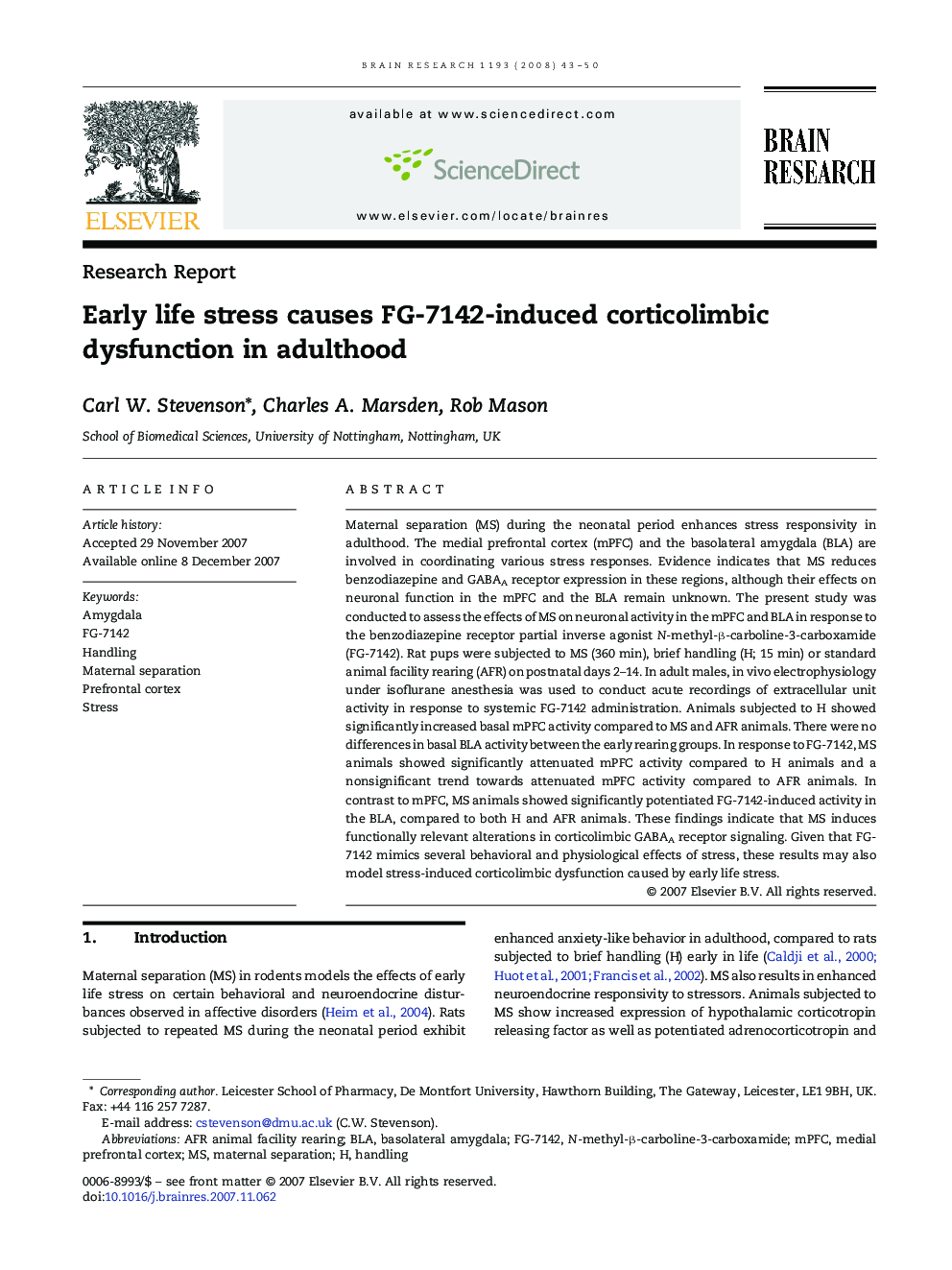| Article ID | Journal | Published Year | Pages | File Type |
|---|---|---|---|---|
| 4330169 | Brain Research | 2008 | 8 Pages |
Maternal separation (MS) during the neonatal period enhances stress responsivity in adulthood. The medial prefrontal cortex (mPFC) and the basolateral amygdala (BLA) are involved in coordinating various stress responses. Evidence indicates that MS reduces benzodiazepine and GABAA receptor expression in these regions, although their effects on neuronal function in the mPFC and the BLA remain unknown. The present study was conducted to assess the effects of MS on neuronal activity in the mPFC and BLA in response to the benzodiazepine receptor partial inverse agonist N-methyl-β-carboline-3-carboxamide (FG-7142). Rat pups were subjected to MS (360 min), brief handling (H; 15 min) or standard animal facility rearing (AFR) on postnatal days 2–14. In adult males, in vivo electrophysiology under isoflurane anesthesia was used to conduct acute recordings of extracellular unit activity in response to systemic FG-7142 administration. Animals subjected to H showed significantly increased basal mPFC activity compared to MS and AFR animals. There were no differences in basal BLA activity between the early rearing groups. In response to FG-7142, MS animals showed significantly attenuated mPFC activity compared to H animals and a nonsignificant trend towards attenuated mPFC activity compared to AFR animals. In contrast to mPFC, MS animals showed significantly potentiated FG-7142-induced activity in the BLA, compared to both H and AFR animals. These findings indicate that MS induces functionally relevant alterations in corticolimbic GABAA receptor signaling. Given that FG-7142 mimics several behavioral and physiological effects of stress, these results may also model stress-induced corticolimbic dysfunction caused by early life stress.
